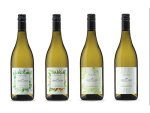It's been three years since the free trade agreement (FTA) was signed with South Korea and New Zealand cheese is making a significant impact on their shelves.
The country is NZ’s fifth-largest cheese market, and in 2017 was worth NZ$120m a year.
NZ’s cheddar exports have more than doubled in value since the FTA was signed, and NZ now accounts for over 60% of South Korea’s cheddar imports.
While it’s good news for NZ, the FTA is also good news for our dairy farmers.
Fonterra South Korea country manager Jason Murney says the access under the FTA allows Fonterra to invest in product and supply chain innovations and provide higher returns through its value-added products.
“We’re seeing some advancements in the Korea/NZ FTA so the future for cheese particularly is looking very good. This along with our investment in mozzarella cheese at Clandeboye in NZ and Stanhope in Australia, we’re expecting to see Fonterra’s cheese exports double over the next five years.
“Since the signing, Fonterra has seen a 40.5% increase in the value of our cheese trade with South Korea,” says Murney.
Consumption of dairy products is rising in Korea, as dietary trends follow those of neighbouring Asian countries such as Japan. In 1990 Koreans consumed 43.8kg liquid milk equivalent per capita but by 2017 that had risen to 79.5kg.
It’s expected that NZ’s annual duty-free quota of 7600 tonnes of cheese to Korea will increase by three per cent per year.
And it’s not all about cheese. Since the FTA was signed, butter imports have increased in value by 125%, with NZ accounting for about 40% of all South Korea’s butter imports.
“The development of the Korean market is in line with Fonterra’s strategy of moving more milk volumes into higher margin products, thus earning greater returns for our farmer shareholders,” says Murney.











